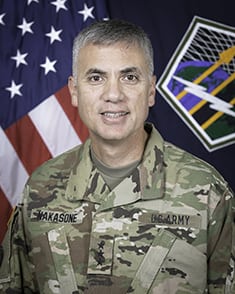
The president’s nominee to be the next leader of Cyber Command and the National Security Agency told lawmakers Thursday a defined, whole-of-government strategy is needed to deter Russian interference after previous U.S. responses to cyber attacks have been insufficient in deterring adversaries.Lt. Gen. Paul Nakasone, commander of Army Cyber Command, testified at his first confirmation hearing in front of the Senate Armed Services Committee (SASC), where he acknowledged that executive leadership needs to direct a plan for responding to Russian…

 By
By 









